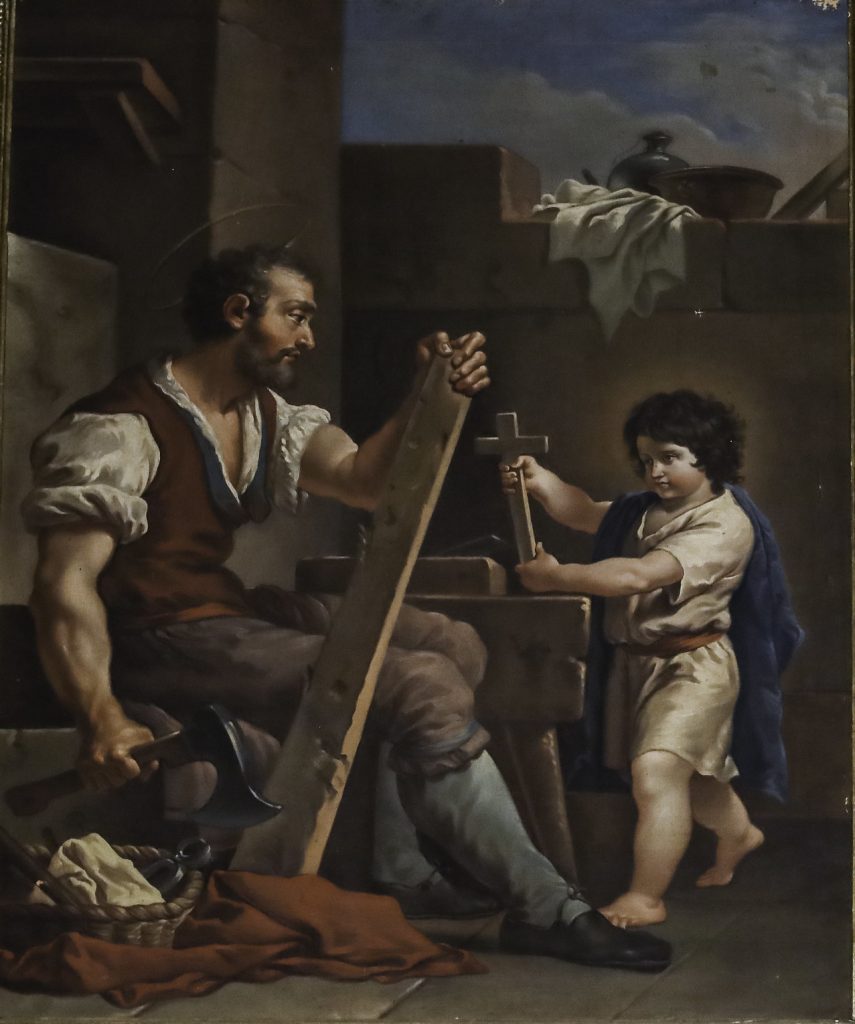The Jubilee of Workers celebrates the vital contribution to society made by all workers: professional and trades, paid employees and volunteers; while also recognising the model of all workers, St Joseph.
PRAYER
Loving God,
You desire that work be a blessing and not a burden for us, our families and our community.
Help us to be witnesses and agents of a just society in which all who want work can get it,
and in which all who do work are treated with dignity and justice.
Help us to care for our neighbours who do not have the dignity of work,
and for those who face exploitation in their workplace.
Nurture in us a commitment to a society where there is work for all who want it and where work is truly a blessing for the worker and the whole community.
We ask this in the name of Jesus, Your Son, who is Lord for ever and ever.
Amen.
TEACHING

In modern times, the dignity of workers has been a constant concern for the Church. Pope Leo XIII’s encyclical, Rerum Novarum, issued in 1891, began a long tradition of the Church showing its care and concern for workers in a constantly changing landscape. In Rerum Novarum, Pope Leo XIII set out to identify the concerns of working people in an increasingly industrialised world. He sought to define what was needed to ensure that workers conditions and wages ensured their dignity. As circumstances have changed, Leo XIII’s successors have sought to give voice to the Church’s continuing concern for workers to ensure that they are treated justly.
More recently, Pope Francis speaks of the need to protect employment in his encyclical, Laudato Si’ (2015; 124-129):
“127. Work should be the setting for this rich personal growth, where many aspects of life enter into play: creativity, planning for the future, developing our talents, living out our values, relating to others, giving glory to God. It follows that, in the reality of today’s global society, it is essential that “we continue to prioritize the goal of access to steady employment for everyone”, no matter the limited interests of business and dubious economic reasoning.
“128. We were created with a vocation to work. The goal should not be that technological progress increasingly replace human work, for this would be detrimental to humanity. Work is a necessity, part of the meaning of life on this earth, a path to growth, human development and personal fulfilment. Helping the poor financially must always be a provisional solution in the face of pressing needs. The broader objective should always be to allow them a dignified life through work.”
In Australia, the Australian Catholic Bishops Conference maintains this commitment locally through the work of the Australian Catholic Council for Employment Relations (ACCER). One of the most important contributions ACCER makes on behalf of the Bishops is to make a submission to the annual minimum wage case. Through ACCER, the Bishops seek to ensure that the most vulnerable workers are guaranteed an adequate income to enable them and their families to live a dignified life.
From ‘The Dignity of Work and the Rights of Workers’ (USCCB):
“The economy must serve people, not the other way around. Work is more than a way to make a living; it is a form of continuing participation in God’s creation. If the dignity of work is to be protected, then the basic rights of workers must be respected – the right to productive work, to decent and fair wages, to the organisation and joining of unions, to private property, and to economic initiative.”
TESTIMONY
 Joseph the Worker Building Group renovates homes in the southeast suburbs of Melbourne. Joe Van Strijp, the company’s founder, strives to lead a team of “ethical tradesmen”.
Joseph the Worker Building Group renovates homes in the southeast suburbs of Melbourne. Joe Van Strijp, the company’s founder, strives to lead a team of “ethical tradesmen”.
“I thought that if I ever get the chance to create my own company, I’m going to really strive hard, not just personally to become a saint, but integrate that into my business,” Joe says.
From the very beginning, the business was named after St Joseph the Worker. “It was always his business. It’s still his business. We pray to him every day,” Joe says. “The culture of the ethical tradesmen is infused into everything we do. From meeting a client and turning up on time, being professional and polite, through to following through on pricing, quality of workmanship, not swearing, and having tradesmen treat the homes like their own.
“That stands out in our modern world. People go, ‘There’s something unique about these guys,’ and they want more of it, and referrals come from that.”
– Joe Van Strijp, Melbourne (From the Catholic Archdiocese of Melbourne).
PRAYERS OF INTERCESSION
For all workers, that governments ensure laws are put in place to protect them from exploitation in their workplace.
We pray to the Lord.
For those who are unemployed, that they be provided with the support they need to obtain work and to keep it.
We pray to the Lord.
ADDITIONAL RESOURCES
Pope Francis’ Encyclical Letter Laudato Si’ on Care for our Common Home (2015).
CST 101: The Dignity of Work and Rights of Workers (USCCB).
Pastoral Letters on Work (ACBC Office for Justice, Ecology and Peace).
Creative Commons Licence
The text of this publication is licensed under a Creative Commons Attribution – NonCommercial – Share Alike 3.0 Australia Licence. Please attribute this publication to the Bishops Commission for Evangelisation, Laity and Ministry, November 2024.
This resource may be reproduced or photocopied in its entirety or in part. No copyright fee is payable.